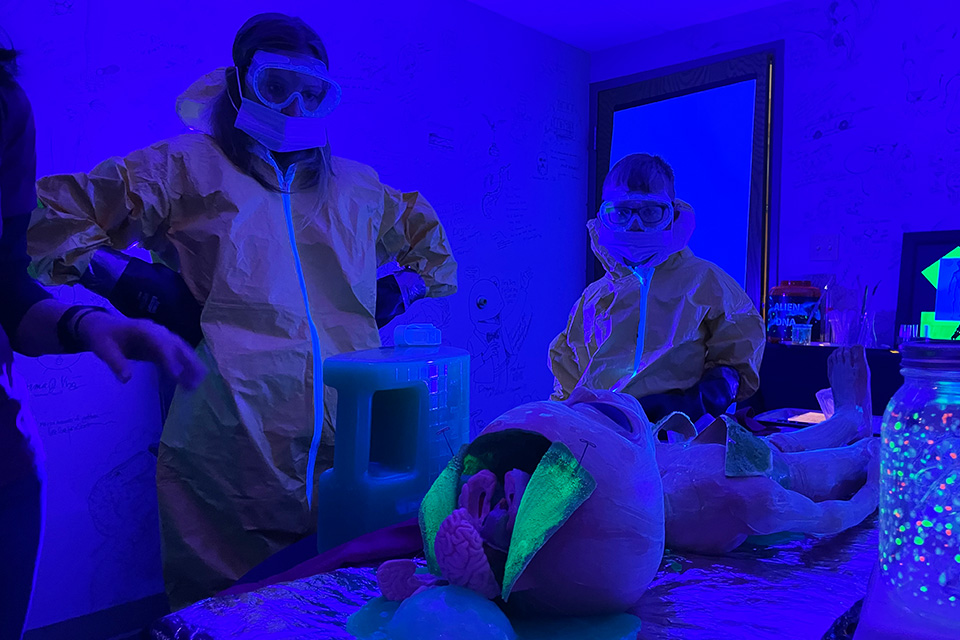University of Findlay’s Mazza Museum welcomed nearly a dozen children in grades 5-8 for their annual STEAM Camp. The five-day forensics camp focuses on the areas of science, technology, engineering, arts, and mathematics (STEAM), and this year features an alien theme.
Students start each morning with a debriefing about alien encounters or what animals scientists say might be alien life forms. On Monday they visited the University’s Newhard Planetarium, where they learned about space and how little humans have actually explored—only making it as far as Mars, and only with a rover.
After leaving the planetarium, students suited up in HAZMAT gear as they learned more about the environment, health, safety, and sustainability (EHS) program. Students put on two suits, three pairs of gloves, shoe covers, and boots before beginning their search for an alien intruder. Boys and girls used their black lights to look for clues, crawled through tunnels, and stumbled upon some liquid left behind by the aliens which they took samples of for testing. Students wore official safety gear (excluding oxygen masks), just as they would if they were truly exploring an unknown extraterrestrial discovery. “It gives the kids the chance to suit up and feel what these people do on a daily basis to keep our environment protected,” said Heather Sensel, education manager for Mazza Museum and the Joseph & Judith Conda STEAM Education Center.
The focus of the camp is to get kids to utilize their critical thinking skills in an environment that also promotes hands-on learning. Students have experienced an alien autopsy in a lab with an alien cadaver, collected moonstones, and recovered alien DNA. Students also ventured across campus where they found crop circles, took measurements, tested the soil, and learned about runoff and PH levels. “Studies show that girls seem to lose interest in STEAM fields around the age of 15 and boys stats in the STEAM fields are on the decline,” said Sensel. “If we can keep them interested, energetic, and enthused by adding a creative twist and integrating those fields with a STEAM atmosphere, that is going to be the most beneficial. STEAM learning is our goal…real-world topics and issues with a twist” said Sensel.
Students will spend the week exploring aliens and learning about animals that some scientists believe may be alien themselves (octopus, ants, etc.). Students will dissect octopi, learn about the intelligence and exoskeleton of ants, and develop their own opinions on aliens. At the end of the week, each student will take a stance and present in front of their classmates, parents, and University team members. “They will tell us what they think about the existence of extraterrestrials. Do aliens exist? Is it even possible? Could one of the animals on Earth be an alien life form?” said Sensel.
To learn more about the University of Findlay, including future camps, visit www.findlay.edu. For more information about Mazza Museum, including this summer’s Mazza Art Camp and Summer Conference, visit the museum’s website.
To see pictures from the camp, please visit Mazza’s Flickr page.

